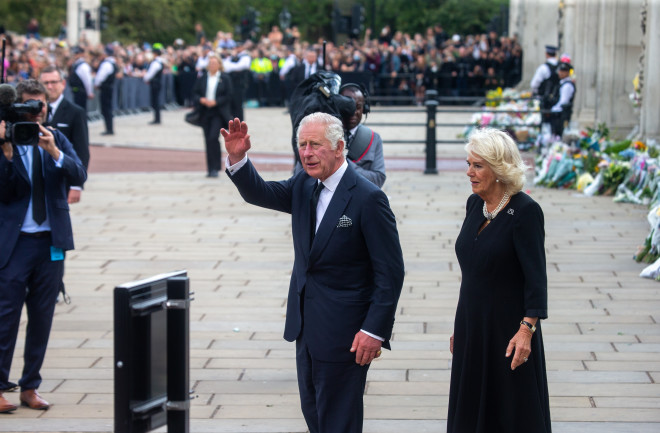King Charles III, who assumed the throne of the United Kingdom in 2022 upon the death of Queen Elizabeth II, has a reputation as an environmental activist. What's more, some political commentators see his reign as an opportunity to enact the large-scale change needed to fight global warming.
When he first entered public life at age 20, the then-Prince of Wales used his celebrity to sound the alarm. “Conservation or problems about pollution should not be held up as separate concepts from housing or other social schemes,” he said in 1970. “The word ecology implies the relationship of an organism to its environment, and we are just as much an organism as any other animal that is often unfortunate enough to share this Earth with us.”
This rhetoric sounded radical in its day, and rings with urgency even now. Still, the politics of the U.K. — and the tensions of its current cultural moment — may hamstring Charles’s attempts at climate advocacy.
King Charles's History of Environmental Activism
In the ensuing decades, Charles continually pressed for environmental action in essays, public addresses, and meetings with political figures, famously urging delegates at a 1992 UN climate conference to show “vision and courage.” Aging into the role of elder statesman, he often wondered aloud about the world he’d leave for his grandchildren.
His own conservation habits were tabloid fodder: For example, his sons recall how Charles drilled it into them to turn out the lights when leaving a room. He also had the engine of his 1970 Aston Martin converted to run on biofuel derived from byproducts of cheese and white wine.
His private homes were upgraded with solar panels and heat pumps; Highgrove, his primary residence, gets 90% of its power from renewable sources, and its famous gardens are managed sustainably. The king even publicly discloses his annual carbon footprint.
And then there’s his management of the Duchy of Cornwall, a private estate of working commercial farms owned by the Royal Family. Beginning in the 1980s, Charles phased out industrial agricultural practices and introduced organic farming techniques with an eye toward improving biodiversity and sustainability, even partnering with the high-end grocer Waitrose to produce luxury organic food products under the Duchy Farms label.
Read More: Science in the White House: Has Biden Delivered?
The State of Environmental Activism in the UK
As king, Charles inherits a country that is already making gains in conservation. The U.K. has set an ambitious goal of net zero carbon emissions by 2050.
Renewable sources (mainly windpower) currently account for about 43% of the U.K.’s household electricity production, or 18% of total energy consumption; that puts the kingdom on a par with most EU nations, and far ahead of the U.S.
Most of this progress has come via public–private partnerships that incentivize corporate innovation — the sort of market-friendly policy that Charles has always championed.
But Charles may be too radical for his conservative subjects. Brexit was spurred in part by reactionary hostility to EU environmental regulation, and the political climate, driven by right-wing media, has only deteriorated since.
Take, for example the backlash to a push for walkable “15-minute cities” — an urban planning concept that posits all the necessities of daily life should be within a roughly 15 minute reach by foot or bike. In recent months, the idea has fueled a flurry of new online conspiracy theories, including that the notion is part of a sinister plot to outlaw private automobiles.
Read More: 5 of the Most Outlandish Ideas to Fight Climate Change
Is King Charles an Environmentalist?
Charles, and indeed the mainstream green movement, has grown beyond these bleak ideas. Influenced by thinkers like economist E.F. Schumacher, the king emphasizes sustainable development; he has long worked with private industry to find ways to decarbonize operations and has encouraged governments to find ways to do well by doing good.
In 2007, for instance, he established the Prince’s Rainforests Project, a charity that helped broker an agreement under which industrialized nations contribute development aid to developing countries contingent on the latter curtailing destruction of their rainforests.
“Forests are being cut down to generate an economic return,” said project advisor Tony Juniper at the time. “The idea of the Rainforests Project was to make the forest worth more alive than dead.”
Read More: The Amazon Rainforest Could Die in Your Lifetime — Here's Why
What Will His Reign Mean for the Climate?
As king, Charles will be more constrained in expressing his opinion than he was as heir. The U.K.’s constitution obliges the monarch to remain nonpartisan in political debates, and Charles has indicated that he will abide by this: “It will no longer be possible to give so much of my time and energies to the charities and issues for which I cared so deeply,” he said in one of his first speeches as king. “This important work will go on in the trusted hands of others.”
On the other hand, though his public voice on environmental issues will be quieter, Charles still retains all the soft power he built before taking the throne, including his personal relationships with world leaders.
And, as Charles tells it, his love for the land is more than aesthetic. In his writings, especially the book Harmony, he diagnoses environmental destruction as a symptom of humanity’s alienation from the natural world, and points to the beauty and purpose to be found in reconnecting with more sustainable traditional lifestyles.
Read More: Solutions for Solar Panel Waste Are Just Beginning to Surface

